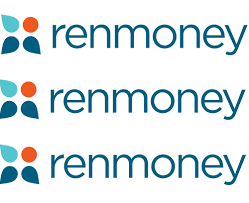In a country where the minimum wage is mere 63 dollars per month and the cost of living is pushing toward the roof, it is normal, even lauded, for salaries to be exhausted before the next payday. The next move for a Nigerian worker who must transport himself to work, feed himself and a brood of relatives (in most cases) pay or power, water, and other bills, is obvious: borrowing. Even one lucky enough to have persons they can borrow from, there is always that one time everyone says, “I don’t have, no vex”. Because bills must be paid, alternatives are pursued. That is where Renmoney and other online lenders come in.
The rise of Renmoney and other lending apps
Renmoney started operations in 2012 as Rencredit. They rebranded as Renmoney Microfinance Bank in 2013 upon getting licensed by the CBN. They claim to be in business to help small and medium businesses and with over 400 employees and over 25,000 25,000 customers, you would be forgiven if you believe that their business is what it is: saving and lending to support businesses.
Their business is narrower than this.
At a quick count, from just lending apps mentioned by friends, seen on Google ads, and elsewhere, there are more than a dozen of them, each promising to lend you huge sums with little interest to invest and grow your business. Renmoney, Palmcredit, PayLater, KiaKia, Fairmoney, and Branch are some of the household names in the “Gbese” industry. But their track records show it is more of holding money until your next salary is paid.
Banks, also, offer payday loans in which you pay back between 28 and 30 days at between 4 to 8 percent interest; there is huge money to be made from the collective lack bedeviling Nigerians and banks are there for the gains.
The more doors to financial freedom are shut in the face of many Nigerians, the more they turn to lenders. These lenders are no fools, you have to build your credit score starting from as low as 2000 naira. They have phone numbers of four to five of your friends, they have your contact address, they have your BVN. In some cases, you won’t get a kobo until you show them your statement of account which shows a substantial flow of income.
Documents and contact info aside, there are lenders who would not give you any reasonable money if you don’t live in Lagos and if you don’t have a physical business they can visit to fight for their money. The truth is so many Nigerians go to these apps with the intention of not paying back. Some just don’t have the means to pay back.
See how much you can make on Zoom per day
It is a testament to the shamelessness occasioned by poverty that many Nigerians now wear with pride on their sleeves. “My friends know I’m broke,” they would say to the threat to call them out by their creditors. The home address is usually wrong. They may even break their sim card and cut the lenders off. Lending apps lose money when debtors abscond.
In anticipation of this, to make up for this, Renmoney and co. charge as much as 45% interest for loans. The Central Bank of Nigeria’s loan rate is capped at 9%. Loan apps don’t seem to know this. Nor under any pressures to comply.
On their part, banks do not go for these cutthroat interest rates but they insist on salary accounts before they consider you ineligible.
Renmoney and the borrowing industry: Who is losing?
The list of losers is short but no matter how you desire to look at it, the chief loser is the common man who pays the price for being broke.
The borrowers
The mantra of “don’t borrow to eat” is wasted on Nigerians. And once you feeding is a problem for you, you are not surviving, you are barely surviving. When you trade, the price is profit-making; when you sow the price is to reap agric produces that can be used for food or exchanged for money; when you go to school, the price is education, certification, or both. The price for surviving is surviving.
Renmoney, Branch, Fairmoney, and their ilks are not in the business to support your business. Their goal is to keep you afloat to continually eat crayfish and crabs. They are not interested in teaching you how to catch fish. The risk of investing in your fishing courses is too much. There is no government safety net to run to if you abscond and the system is not tight enough to rope you back.
So you continue to float and never grow.
The economy
An economy full of eaters is not an economy that would go places. For an economy to boom, it must have people who produce more than people who consume. Nigeria is not bereaved of people who produce but the problem is that the producers are far outweighed by the consumers, giving rise to a situation where we produce arithmetically and consume geometrically.
An app that aids consumption, no matter what else they claim to do, is hurting the economy and this invariably means it is hurting everyone.
It is a terrible catch-22 we have found ourselves in: To be productive, you need money to eat but if you only eat, you would never be productive enough to stop living just to eat. Where does this end? We can’t say, but when Renmoney charge up to 40% to afford you the means to eat, they are not the losers.
We are on Pinterest

